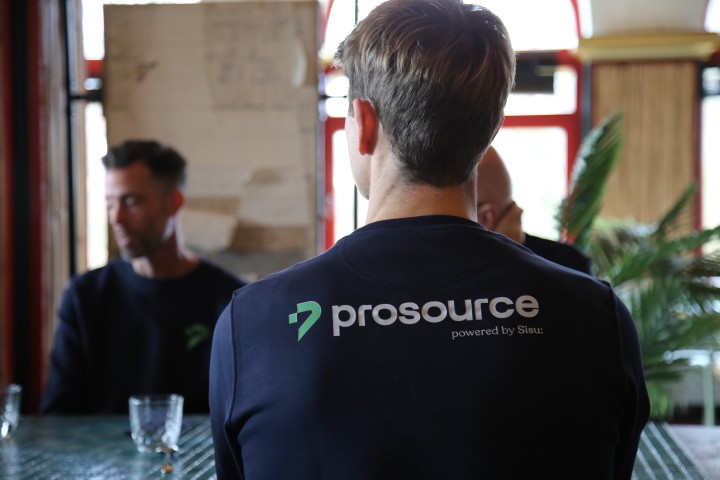Interpersonal Leadership Skills for Project Management Success
-
Insight
-
Project Management
Are you a business professional looking to enhance your leadership skills? While technical expertise is crucial, it’s not the sole determiner of success. In this article, we’ll explore the key interpersonal skills every project manager should possess, their significance, and how to develop them.
Project failures often stem from a lack of clear expectations, poor leadership, and misalignment between teams and management. These challenges arise due to a deficit in ‘soft skills’ – personal attributes that enable project managers to foster team morale, motivate individuals, and handle conflicts effectively.
THE POWER OF SOFT SKILLS
Soft skills are not typically acquired in academic or professional settings unless individuals proactively seek to nurture them. However, Brandeis University’s project management researchers emphasise that most people can cultivate these skills through awareness and effort. By honing the right soft skills, project managers can excel at managing people, reducing time spent on employee morale and motivation, and enabling focused attention on planning, risk management, project quality, and completion.
BUILDING STRONG FOUNDATIONS BY COMMUNICATING
Communication tops the list as the most vital skill for project managers. Effective communicators help teams understand their roles, tackle challenges, and prevent complications from the project’s inception. As a project manager, dedicating time daily to ponder the team’s informational needs and engaging in meaningful conversations can enhance your communication abilities. Active listening to team members can improve overall dialogue, fostering a collaborative environment.
INSPIRING LEADERSHIP
Leadership entails inspiring, motivating, and guiding others when necessary. Skilled leaders provide positive feedback and constructive criticism, remaining composed during high-pressure situations. They clearly articulate the organisation’s vision while promoting a supportive company culture and offering professional development opportunities. To refine leadership skills, project managers can provide regular feedback to team members, explore stress management techniques, and approach difficult situations with composure.
FINDING COMMON GROUND THROUGH NEGOTIATION
Negotiation skills enable project managers to swiftly reach agreements and find common ground with team members, even in the face of disagreements. Good negotiators understand the importance of compromise and are willing to engage in give-and-take scenarios. Project managers who embrace negotiation earn a reputation for fairness and respect among their teams. Enhancing negotiation skills involves cultivating flexibility in employee relations.
EMBRACE CHANGE AND OVERCOME CHALLENGES
Successful project managers adapt to unforeseen changes and hurdles, leading their teams through adversity. They possess the ability to adjust expectations and plans swiftly while anticipating potential pitfalls. Adopting a more adaptable mindset is crucial. Accepting that things may not always go according to plan and mentally preparing for contingencies empowers project managers to navigate difficulties effectively.
SETTING THE LEADERSHIP STANDARD
Project managers serve as examples for their teams. Demonstrating diligence and a strong work ethic sets the tone for others to follow suit. Paying meticulous attention to detail is essential for a project manager’s success. Developing diligence involves committing to hard work every day, regardless of circumstances or project complexities.
These five soft skills are just a glimpse into the interpersonal qualities that drive project management success. Committing to personal development and actively nurturing soft skills will yield the most favourable career outcomes. Remember, soft skills matter, so why not cultivate them? By mastering interpersonal skills, business professionals like yourself can become better project managers, leading teams to triumph in every project they undertake.
ELEVATE YOUR LEADERSHIP JOURNEY
In the fast-paced world of business, mastering interpersonal leadership skills is a game-changer for project managers. While technical expertise lays the foundation, it’s the soft skills that set exceptional project managers apart from the rest. By developing these skills, you can create a positive work environment, motivate your team, and drive project success.
Remember, effective communication is the key to building strong foundations. Take time to understand and convey expectations clearly, fostering an environment of collaboration and problem-solving. Additionally, embrace your leadership role by inspiring, guiding, and providing valuable feedback to your team members. Your composed demeanour during stressful situations will inspire confidence and trust among your colleagues.
Negotiation skills are essential in managing conflicts and finding common ground. Be flexible, compromise when necessary, and strive for fairness and respect in your interactions. Moreover, cultivate adaptability to navigate unforeseen challenges and changes with ease. Embrace a mindset that embraces contingencies and proactively plans for them.
Finally, diligence and attention to detail will set you apart as a project manager. Lead by example, demonstrating a strong work ethic and meticulousness in every task. By committing to personal growth and continuous improvement, you will position yourself for a successful project management career.
Now, it’s time to embrace the journey of becoming a more effective project manager through interpersonal leadership skills. Let your career soar to new heights as you inspire and guide teams towards success!




























